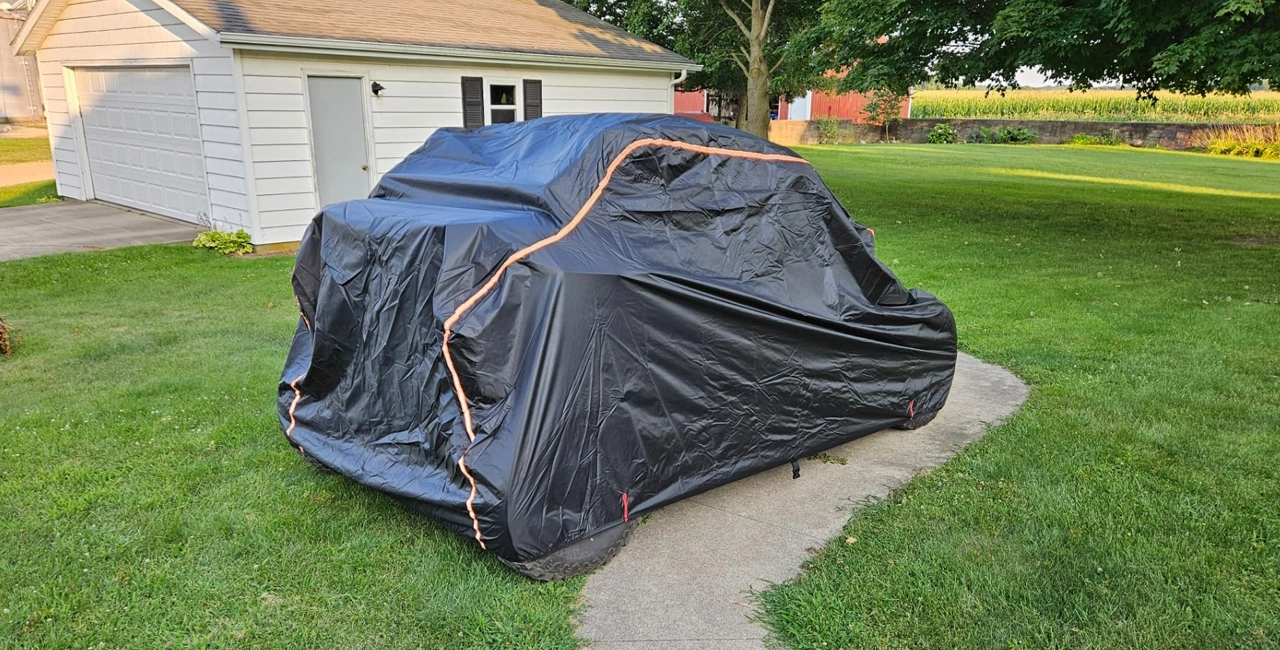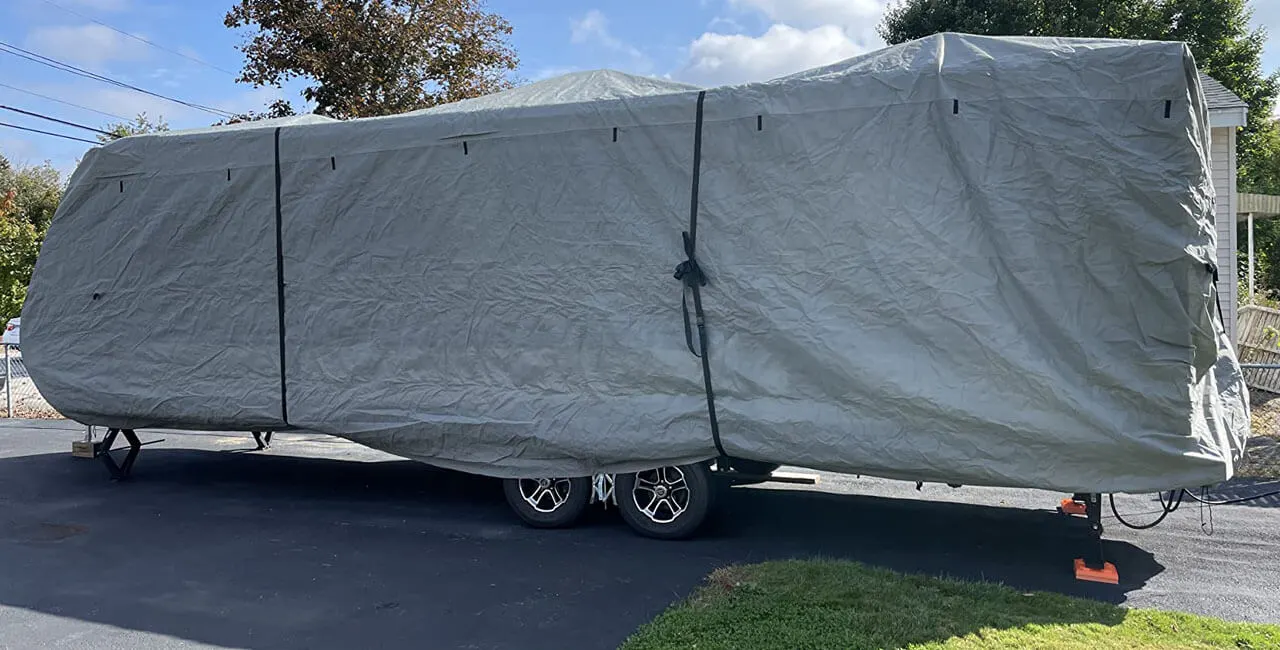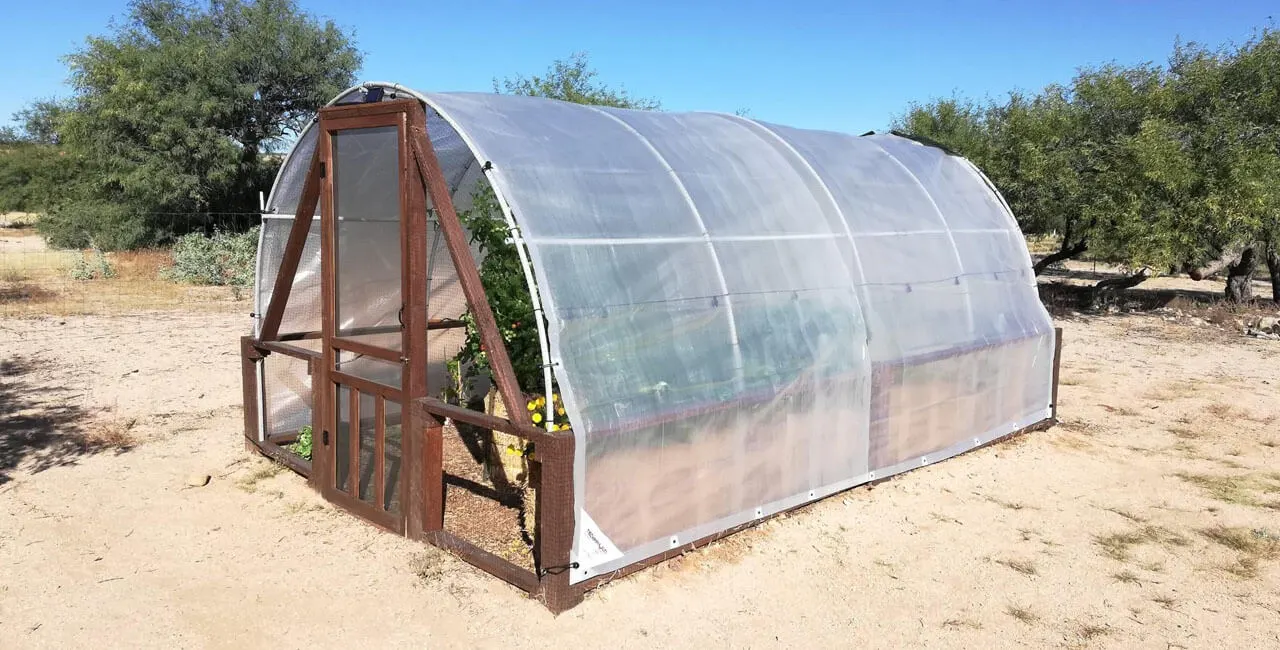1. Dyed Oxford Fabric
Production Process
The fabric is first woven (Weaving) and then undergoes a post-dyeing process (Piece Dyeing).
Raw materials typically consist of white or natural-colored yarns, which are woven into greige fabric before being dyed in a dye bath.
The fabric is colored through dipping or padding, followed by finishing treatments such as coating, waterproofing, and UV resistance.
Price & Minimum Order Quantity (MOQ)
Lower cost due to a simpler production process, making it suitable for mass production.
Lower MOQ, usually starting from 1,000 meters (depending on the factory).
Key Features
Uniform color distribution, ideal for large-scale production of standard-colored fabrics.
Can be coated with PU, PVC, silver, or silicone for enhanced waterproofing, UV resistance, and flame retardancy.
Commonly used for car covers, motorcycle covers, furniture covers, luggage, and backpacks, where consistent color is essential.
Application Scenarios
Outdoor protective covers (Car Covers, Boat Covers, Patio Covers)
Luggage & bags (Backpacks, Luggage, Trolley Bags)
Apparel fabrics (Workwear, Raincoats)
2. Yarn-Dyed Oxford Fabric
Production Process
The yarn is dyed first (Yarn Dyeing) before the fabric is woven (Weaving).
Different-colored warp and weft yarns are interwoven to create two-tone effects, plaid, stripes, or jacquard patterns.
Since the yarn is dyed before weaving, the fabric offers superior colorfastness and texture.
Price & Minimum Order Quantity (MOQ)
Higher cost due to the expensive dyeing process and complex weaving techniques.
Higher MOQ, usually 3,000–5,000 meters, as different-colored yarns must be dyed separately, increasing production costs.
Key Features
Enhanced colorfastness, resistant to fading even after prolonged sun exposure or washing.
Strong three-dimensional texture, with rich patterns such as plaids and jacquard designs.
Ideal for premium products like business bags, casual wear, and hotel textiles.
Application Scenarios
High-end business bags & briefcases (Business Bags, Laptop Bags)
Fashion apparel (Shirts, Jackets, Uniforms)
Luxury seat covers & decorative fabrics (Luxury Chair Covers, Decorative Fabrics)
3. Comparison of Dyed vs. Yarn-Dyed Oxford Fabric
Category | Dyed Fabric | Yarn-Dyed Fabric |
Production Method | Fabric is dyed after weaving | Yarn is dyed before weaving |
Cost | Relatively lower | Higher (due to yarn dyeing cost) |
MOQ | ~1,000 meters | ~3,000–5,000 meters |
Colorfastness | Standard, fades over time with UV exposure | Superior, highly resistant to fading |
Color Uniformity | Consistent across the fabric | Multi-tone, allows for stripes, plaids, jacquard patterns |
Texture & Depth | Smooth surface, uniform look | More textured and visually dynamic |
Application | Protective covers, luggage, workwear | High-end bags, fashion garments, decorative fabrics |
4. Selection Recommendations
If you need large-scale production, consistent color, and cost-effectiveness ➝ Choose Dyed Oxford Fabric, ideal for car covers, motorcycle covers, furniture covers, and backpacks.
If you need premium texture, multi-tone effects, and superior colorfastness ➝ Choose Yarn-Dyed Oxford Fabric, suitable for high-end bags, apparel, and decorative fabrics.
For your specific products, such as outdoor protective covers, car covers, boat covers, and furniture covers, Dyed Oxford Fabric is recommended to reduce costs while ensuring uniform color in bulk production. For premium product lines, consider incorporating Yarn-Dyed options.

 English
English  Deutsch
Deutsch  中文
中文


